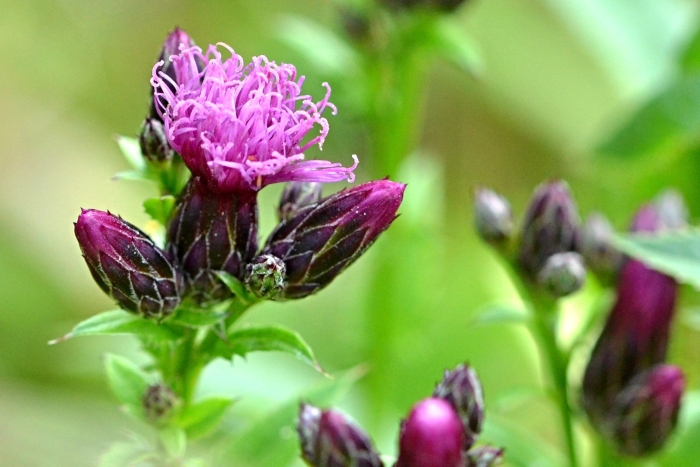Dyer’s Plumeless Saw-Wort
(Serratula tinctoria)
Dyer’s Plumeless Saw-Wort (Serratula tinctoria)
/
/

Petr Harant
CC BY 4.0
Image By:
Petr Harant
Recorded By:
Copyright:
CC BY 4.0
Copyright Notice:
Photo by: Petr Harant | License Type: CC BY 4.0 | License URL: http://creativecommons.org/licenses/by/4.0/ | Rights Holder: Petr Harant | Publisher: iNaturalist | Date Created: 2023-08-12T15:36:39-07:00 |

























Estimated Native Range
Summary
Serratula tinctoria, commonly known as dyer’s plumeless saw-wort, is a spineless, hairless perennial herb native to a variety of habitats across Europe, including grasslands, mires, heathlands, and open woodlands. It is widespread throughout much of England and Wales but is considered rare in Scotland. This plant typically grows between 8 to 31 inches tall and features long, hairless leaves with finely bristle-toothed edges. From July to September, it produces reddish-purple, thistle-like flowerheads that are moderately showy and attract pollinators. The species is known for its historical use in producing a yellow dye from its leaves.
Dyer’s plumeless saw-wort is valued for its low maintenance and ability to thrive in semi-natural vegetation with low soil fertility. It is suitable for wildflower meadows and naturalistic plantings, contributing to biodiversity. It prefers full sun to part shade and tolerates a range of soil types, provided they are well-drained. While not commonly used in formal garden settings, it can be an interesting addition to wildlife gardens. The plant has faced decline due to habitat loss from drainage, ploughing, and lack of management, highlighting the importance of conservation efforts in its native range.CC BY-SA 4.0
Dyer’s plumeless saw-wort is valued for its low maintenance and ability to thrive in semi-natural vegetation with low soil fertility. It is suitable for wildflower meadows and naturalistic plantings, contributing to biodiversity. It prefers full sun to part shade and tolerates a range of soil types, provided they are well-drained. While not commonly used in formal garden settings, it can be an interesting addition to wildlife gardens. The plant has faced decline due to habitat loss from drainage, ploughing, and lack of management, highlighting the importance of conservation efforts in its native range.CC BY-SA 4.0
Plant Description
- Plant Type: Herb
- Height: 1.5-3 feet
- Width: 1-2 feet
- Growth Rate: Moderate
- Flower Color: Purple, Pink
- Flowering Season: Summer
- Leaf Retention: Deciduous
Growth Requirements
- Sun: Full Sun, Part Shade
- Water: Medium
- Drainage: Medium, Fast
Common Uses
Border Plant, Butterfly Garden, Low Maintenance, Water Garden
Natural Habitat
Native to grasslands, mires, heathlands, and open woodlands across Europe
Other Names
Common Names: Saw-wort
Scientific Names: , Serratula tinctoria, Carduus argutus, Carduus tinctorius, Centaurea tinctoria, Centaurea tinctoria, Centaurea tinctoria, Serratula arguta, Serratula arguta, Serratula austriaca
GBIF Accepted Name: